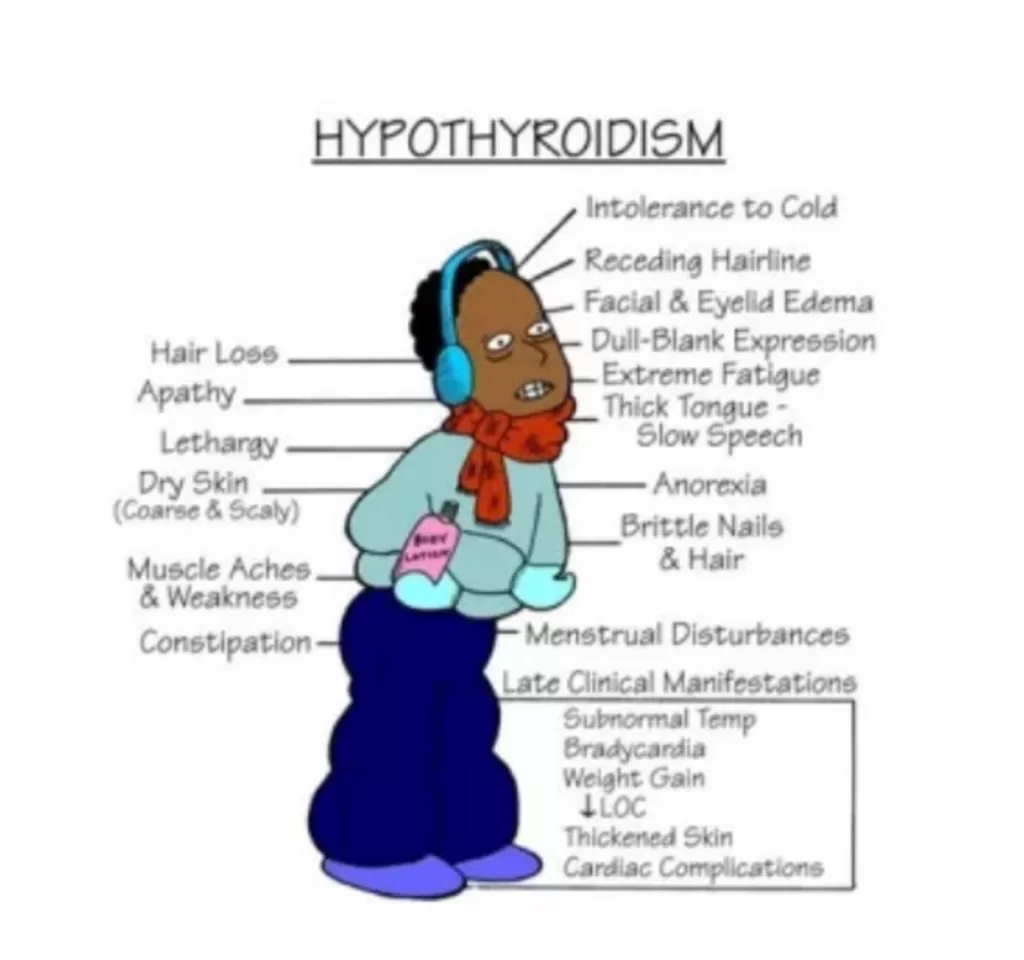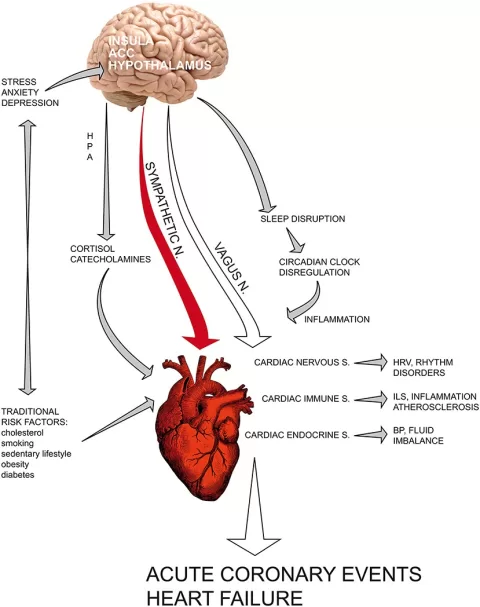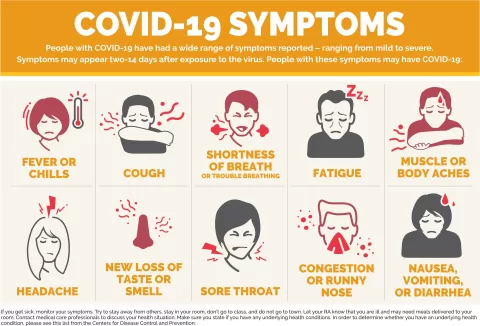Hypothyroidism, often referred to as an underactive thyroid, is a common condition where the thyroid gland fails to produce adequate thyroid hormones essential for regulating metabolism and maintaining body temperature. This deficiency can lead to a host of thyroid symptoms such as fatigue, unintentional weight gain, and feelings of coldness. One of the primary causes of hypothyroidism in the United States is an autoimmune disease known as Hashimoto’s thyroiditis, where the immune system mistakenly attacks the thyroid gland. Understanding hypothyroidism is crucial for effective management and treatment, as many people struggle with losing weight with hypothyroidism despite following diet and exercise regimens. Proper hypothyroidism treatment, typically involving hormone replacement therapy, can significantly improve quality of life by alleviating symptoms and restoring metabolic function.
Hypothyroidism, a condition characterized by insufficient thyroid hormone production, is also known as an underactive thyroid condition. This thyroid disorder can manifest through a variety of symptoms that affect daily life, including extreme fatigue, weight fluctuations, and temperature sensitivity. Identifying this condition is essential, especially since autoimmune diseases like Hashimoto’s thyroiditis are often at the root of hypothyroidism. Alternative therapies and lifestyle adjustments can help those affected manage their symptoms effectively. Understanding the complexities of an underactive thyroid is vital for those seeking to regain their energy and balance their metabolic health.
Understanding Hypothyroidism and Its Symptoms
Hypothyroidism, often referred to as an underactive thyroid, is a condition in which the thyroid gland fails to produce sufficient thyroid hormones, crucial for regulating metabolism. Common symptoms of hypothyroidism include fatigue, weight gain, and an intolerance to cold, which can significantly impact an individual’s daily life. Those experiencing these symptoms often find that their overall energy levels decrease, and activities they once enjoyed become challenging. Recognizing the symptoms early on is essential for proper diagnosis and treatment.
In addition to fatigue and sensitivity to cold, individuals with hypothyroidism may also suffer from constipation, dry skin, and hair loss. These thyroid symptoms can often be mistaken for other health issues, which is why it’s critical to seek medical advice if you suspect you might have an underactive thyroid. Effective communication of symptoms to healthcare providers can facilitate a quicker diagnosis and lead to a tailored treatment plan. Understanding these symptoms not only empowers patients but also aids in combating common misconceptions about hypothyroidism.
What Causes Hypothyroidism? A Closer Look
One of the predominant causes of hypothyroidism in the United States is an autoimmune disease known as Hashimoto’s thyroiditis, where the immune system erroneously attacks the thyroid gland. This chronic condition results in permanent damage, causing the thyroid to underperform and ultimately lead to hormone deficiency. Besides autoimmune factors, other causes include surgical removal of the thyroid, radiation exposure, and even certain medications, illustrating that hypothyroidism can stem from a variety of origins.
Lifestyle factors also play an important role in the management of hypothyroidism. For instance, individuals exposed to excessive amounts of iodine or suffering from chronic illnesses may find themselves at a heightened risk of developing thyroid issues. Hence, understanding the causes, whether genetic or environmental, is crucial for prevention and early intervention of hypothyroidism. Regular screening may help in identifying risk factors, leading to timely treatment and better health outcomes.
Hypothyroidism Treatment Options Explained
The primary treatment for hypothyroidism is hormone replacement therapy, typically administered via a medication called levothyroxine. This synthetic form of the thyroid hormone T4 works by restoring normal physiological levels of thyroid hormone in the body. Patients are usually instructed to take this medication once daily, and regular monitoring is essential to ensure that TSH levels are maintained within the normal range. Finding the right dosage can take some time, as individual responses to the medication may vary.
In some cases, lifestyle changes can complement medical treatment for hypothyroidism. Establishing a balanced diet rich in nutrients that support thyroid health, such as selenium and zinc, may improve symptoms. Additionally, focusing on regular physical activity and managing stress levels can help patients feel more energetic and promote overall well-being, aiding in the thyroid treatment process. Collaborating with healthcare providers to adjust both medication and lifestyle approaches can lead to better management of hypothyroidism.
Living Well with Hypothyroidism: Weight Loss Challenges
One of the most significant challenges faced by those with hypothyroidism is maintaining a healthy weight. Due to hormonal imbalances, many individuals experience difficulty losing weight or may even gain weight despite following strict diets. It’s essential to recognize that hypothyroidism can slow metabolism, making it harder to shed extra pounds. Collaborating with a nutritionist who understands hormonal imbalances can foster effective dietary strategies that support weight loss, even when managing hypothyroidism.
Incorporating regular exercise is a crucial element in losing weight with hypothyroidism. However, given that fatigue is a common symptom, the type and intensity of workouts should be carefully considered. Low-impact activities such as walking, swimming, or yoga can be particularly beneficial, helping to burn calories without overexerting the body. Furthermore, addressing sleep quality is vital as poor sleep can exacerbate weight gain issues. By focusing on holistic approaches, individuals with hypothyroidism can find effective avenues to improve their health and manage their weight.
The Connection Between Hypothyroidism and Autoimmune Diseases
Understanding the relationship between hypothyroidism and autoimmune diseases is vital, as conditions like Hashimoto’s thyroiditis illustrate this connection. In Hashimoto’s, the immune system mistakenly attacks the thyroid, leading to its underactivity. This highlights the importance of autoimmune factors in hypothyroidism development, as it isn’t merely a standalone condition but rather part of a broader autoimmune response that can also affect multiple body systems.
In addition to Hashimoto’s thyroiditis, other autoimmune diseases may coexist with or contribute to hypothyroidism. Conditions such as lupus or rheumatoid arthritis can complicate the management of thyroid health, making it necessary for patients to have a comprehensive healthcare strategy. Recognizing these interconnections allows for better holistic treatment plans, ultimately improving the quality of life for individuals suffering from hypothyroidism and its associated autoimmune challenges.
Frequently Asked Questions
What is hypothyroidism and its symptoms?
Hypothyroidism, often referred to as an underactive thyroid, occurs when the thyroid gland fails to produce sufficient thyroid hormones. Common thyroid symptoms include fatigue, sensitivity to cold, constipation, muscle weakness, and slight weight gain. Understanding these symptoms is crucial for early diagnosis and management.
Is hypothyroidism an autoimmune disease?
While hypothyroidism itself is not classified as an autoimmune disease, a significant cause of hypothyroidism is an autoimmune disorder known as Hashimoto’s thyroiditis. This condition leads to the immune system attacking the thyroid gland, resulting in decreased hormone production.
How is hypothyroidism treated effectively?
The primary hypothyroidism treatment involves the daily intake of levothyroxine, a synthetic thyroid hormone. This medication helps normalize thyroid-stimulating hormone (TSH) levels. Regular monitoring and adjustments may be necessary to find the ideal dosage for managing symptoms.
Can I lose weight with hypothyroidism?
Losing weight with hypothyroidism can present challenges, but it is possible. Effective strategies include working with a healthcare provider to optimize medication dosage, adopting a balanced diet, increasing fiber intake, and maintaining a consistent exercise routine to support metabolism.
What causes hypothyroidism besides autoimmune diseases?
Aside from autoimmune diseases like Hashimoto’s thyroiditis, hypothyroidism can result from factors such as certain medications, surgical removal of the thyroid gland, radiation therapy, and iodine deficiency. Addressing these causes is essential for effective treatment and management.
What is the difference between hypothyroidism and hyperthyroidism?
Hypothyroidism, or an underactive thyroid, is characterized by insufficient thyroid hormone production, leading to symptoms like fatigue and weight gain. In contrast, hyperthyroidism is when the thyroid gland produces excessive hormones, resulting in symptoms such as weight loss, rapid heartbeat, and anxiety.
Is there a connection between genetics and hypothyroidism?
While hypothyroidism itself is not a genetic disease, certain genetic factors may influence the likelihood of developing autoimmune conditions like Hashimoto’s thyroiditis, which is the leading cause of hypothyroidism in many cases. Family history may increase your risk.
What lifestyle changes are recommended for managing hypothyroidism?
Managing hypothyroidism effectively often involves lifestyle adjustments, including regular exercise, a nutritious diet rich in whole foods, adequate sleep, and stress management techniques. These changes can enhance overall well-being and assist in regulating thyroid function.
| Key Point | Details |
|---|---|
| What is Hypothyroidism? | A condition where the thyroid gland does not produce enough hormones for metabolism and temperature regulation. |
| Symptoms | Common symptoms include fatigue, feeling cold, constipation, and slight weight gain. |
| Causes | Mainly caused by Hashimoto’s thyroiditis, an autoimmune disease, along with other factors like medications and surgery. |
| Is it an Autoimmune Disease? | Hypothyroidism can be caused by autoimmune diseases, but not all cases are autoimmune in nature. |
| Weight Loss Tips | Weight loss may be challenging; focus on diet adjustments, improving sleep, and increasing fiber intake. |
| Treatment | Treated primarily with levothyroxine, a synthetic thyroid hormone taken orally once daily. |
| Genetic Factors | Hypothyroidism itself is not genetic, but gene mutations related to the immune system may contribute to autoimmune causes. |
Summary
Hypothyroidism is a prevalent condition that arises when the thyroid gland fails to produce adequate amounts of thyroid hormones, leading to various metabolic issues. Understanding the intricacies of hypothyroidism, from its causes and symptoms to its management and treatment options, is crucial for affected individuals. Effective diagnosis and treatment can significantly improve quality of life, making it essential to seek professional medical advice if you suspect hypothyroidism.
The content provided on this blog (e.g., symptom descriptions, health tips, or general advice) is for informational purposes only and is not a substitute for professional medical advice, diagnosis, or treatment. Always seek the guidance of your physician or other qualified healthcare provider with any questions you may have regarding a medical condition. Never disregard professional medical advice or delay seeking it because of something you have read on this website. If you believe you may have a medical emergency, call your doctor or emergency services immediately. Reliance on any information provided by this blog is solely at your own risk.








